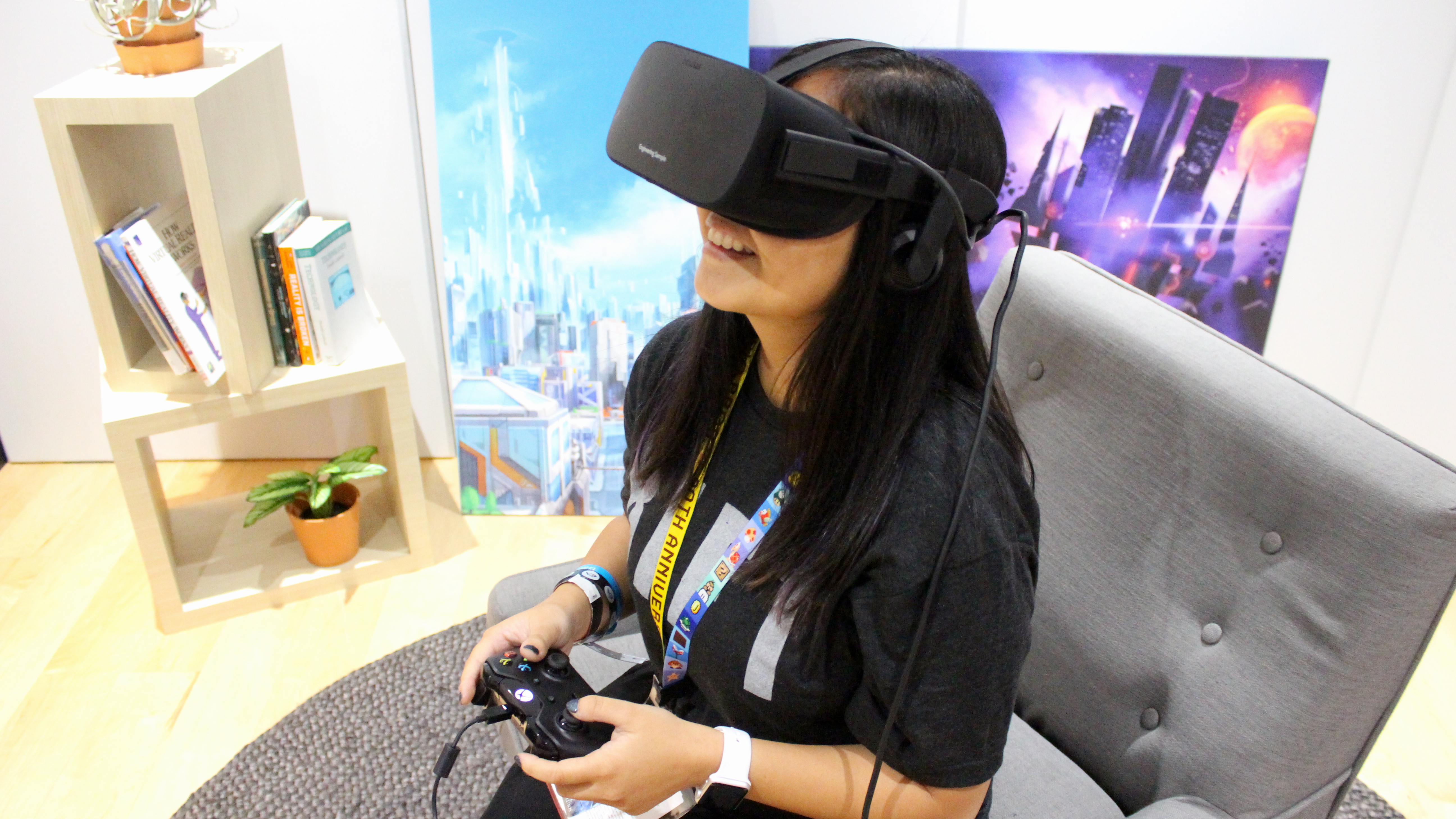If you think the Oculus Rift is too expensive, you're missing the point

Sign up for breaking news, reviews, opinion, top tech deals, and more.
You are now subscribed
Your newsletter sign-up was successful
This week, the Oculus Rift pricing was finally revealed, after years of speculation and hopeful estimates. A million op-eds have been written. The word "ballpark" has been said repeatedly. Basically, the issue is this: it's really bloody expensive.
Eye-wateringly so, in fact, although there is a chance this is just a side effect of having all that virtual reality in your face.
Oculus Rift will cost $599/£499/AU$649. That's a lot. Samsung Gear VR, by comparison, is $100/£80. A lot of people have been handing out Google Cardboard for free. Cardboard is just a cheaply made cardboard box, given, but for access to VR it's still quite a gulf in price.
Hot take incoming.
Now, it's not like I'm the first to pipe up and say this - the internet is full of opinions, then opposing opinions, and then the backlash to the opposing opinions, so this is all pretty much covered - but maybe $599 is… perfectly reasonable?
It's a big number. A lot of money. Many people will not be able to afford it (like me). But it's a new type of technology, and rather than thinking about it in terms of new games consoles, think about it as if it's something entirely new.
And you know what? The HTC Vive will probably cost even more.
Sign up for breaking news, reviews, opinion, top tech deals, and more.
When televisions were first made commercially available, they were prohibitively expensive. Same with cars, refrigerators and even smartphones. In fact, the first iPhone was $599 at launch, and that was only eight years ago.
That's not to say that Palmer Luckey, founder of Oculus VR and creator of the Oculus Rift, has communicated all of this brilliantly. After giving a ballpark figure (there's that word again, hello) of $350 in 2013, everyone's understandably upset about him going back on his word.
Palmer Luckey was 21 in 2013. He was also no doubt wrestling with the problem of people's expectations against growing internal estimates.
I mean, clearly the guy's a genius, but still - 21. This guy was not the media-trained corporate mouthpiece we're accustomed to dealing with. He was (and still is) just a young person pursuing a passion.
So yes, $600 is expensive, but it's a pioneering, first-generation piece of tech. For a minority, it's a way to buy in early, help virtual reality to develop, and seem cool while doing it. For the rest of us, it just means a longer wait until virtual reality is an everyday thing in our lives, too.
And let's be brutally honest here: if VR goes the way of the 3D TV and the Kinect, in 10 years' time it'll be sitting dustily on top of the bookcases belonging to all those early adopters, who will have saved you the trouble.